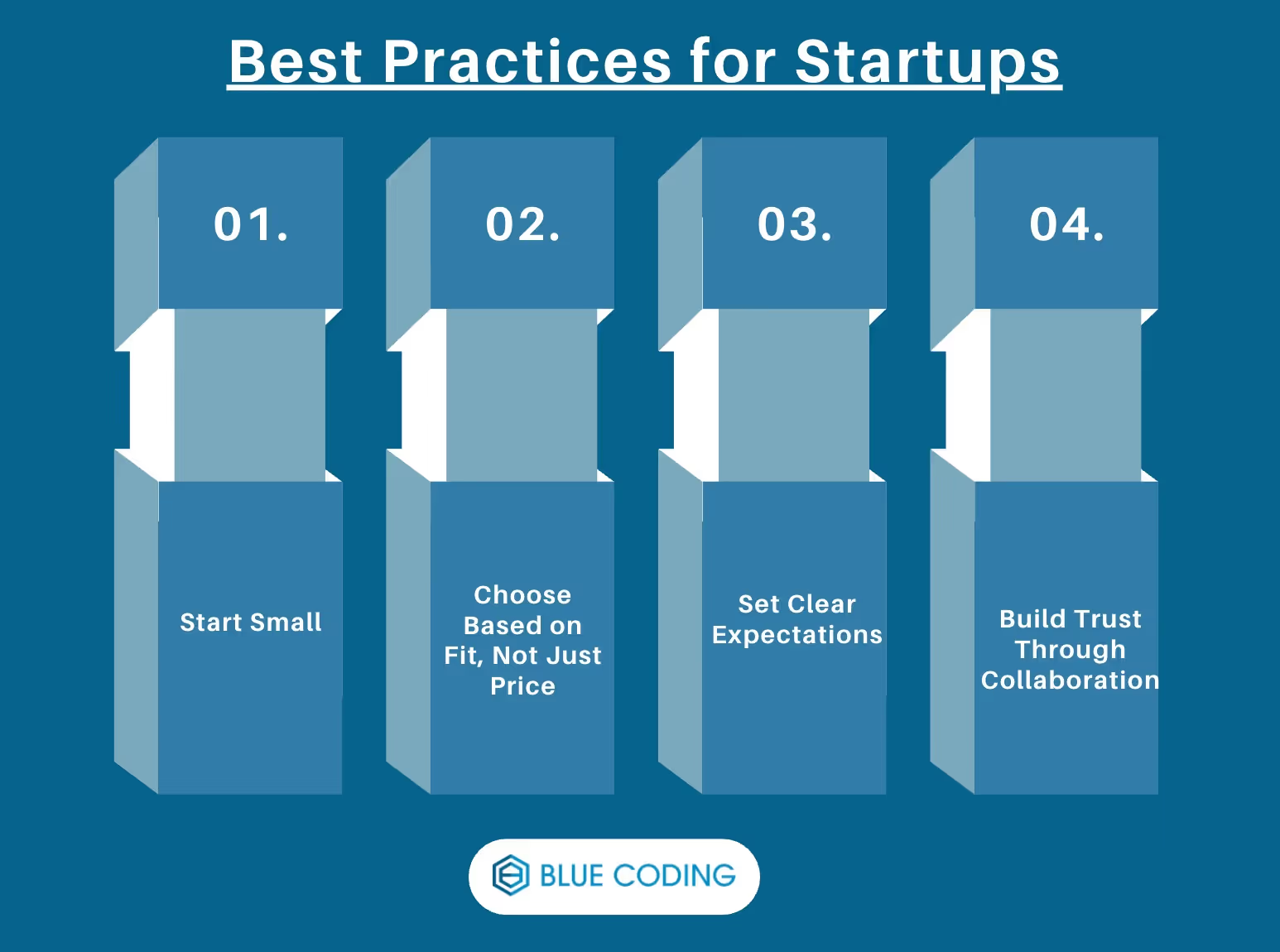When you’re building a startup, every decision feels high-stakes, especially the technical ones. You’re juggling product ideas, tight deadlines, and limited cash flow, all while trying to push out a minimum viable product that won’t break the moment users show up. It’s a lot. And if you’re running lean (like most early-stage founders are), you’ve probably asked yourself: Should we outsource some of this? Startup nearshore outsourcing has quietly become one of the smartest moves for startups needing high-quality development without the overhead of hiring in-house. But is it the right move for you? Let’s dig into the common tech hurdles businesses face when outsourcing for startups, and how startup nearshore outsourcing could be the game-changer you didn’t know you needed.
Launching a tech startup is exciting, but it comes with a unique set of hurdles, especially when it comes to building and scaling software. With limited resources, evolving product ideas, and the pressure to ship fast, many startups find themselves facing technical challenges that can stall growth or break momentum. Here’s a closer look at the most common issues startups encounter in the software development journey.
Startups often begin with small, lean teams, which means limited engineering power to build and maintain their product. This leads to founders and early developers wearing multiple hats, writing code, fixing bugs, handling deployments, and sometimes even managing customer support. With so much going on, it becomes difficult to focus on writing clean, scalable code or setting up long-term technical infrastructure. The pressure to launch fast can lead to shortcuts that cost more down the road.
Choosing the right tech stack is not just about picking what’s trending. It’s about matching technology to your startup’s short-term goals and long-term vision. Many startups end up switching stacks after launch because they didn’t assess scalability, community support, or team familiarity. This switch can drain resources, delay progress, and affect product stability. It’s a high-stakes decision that shouldn't be rushed, yet in the startup world, time is never on your side.
Finding experienced developers who believe in your idea and are willing to work in an unpredictable environment is one of the hardest things for startups. On top of that, competing with established companies on salary and benefits is nearly impossible. This leads to long hiring cycles or settling for less experienced talent, which can impact code quality and slow development. Startups need to offer more than money; they need to sell the vision.
When product ideas are still evolving, it’s tempting to skip documentation and start building. But without well-defined requirements, developers can end up building the wrong features or building them the wrong way. This causes rework, confusion, and unnecessary delays. Startups often learn the hard way that clarity up front saves a lot of pain later. Even lightweight specs or user stories can make a big difference.
In the early days, it was common to build quickly without worrying about performance or scale. But once users start growing, things can fall apart with slow load times, database issues, and buggy features all surfacing. For startups, the challenge is knowing when to shift from “build fast” mode to “build stable” mode. Without a strong development process in place, scaling often turns into constant firefighting.
Security is easy to overlook when you’re racing to ship a product. But skipping basic security practices like input validation, access control, or encrypted storage can lead to vulnerabilities that damage trust. Startups are especially vulnerable because they often don’t have a dedicated security team. One data leak or breach can be enough to lose users or kill momentum.
Because of the pressure to launch fast, most startups rack up technical debt early on. Quick fixes, messy code, or outdated tools keep piling up. If this debt isn't managed, it slows down future development and makes even simple updates risky. Startups have to balance delivery speed with occasional pauses to refactor and clean things up before it gets out of hand.
Startups often rely on remote developers to reduce costs or tap into global talent. But managing a distributed team comes with its own challenges, like time zone differences, inconsistent communication, and a lack of team bonding, which can all affect progress. Without strong project management and collaboration tools, it’s easy for tasks to fall through the cracks.
Formal QA often takes a backseat in the early stages. Instead, developers test their own code, and bugs are caught only after users complain. This reactive approach might work when the user base is small, but it quickly becomes unsustainable. Startups that don’t invest early in automated testing or even basic testing checklists find themselves constantly fixing issues after release.
Startups often want to leverage AI, blockchain, or other new technologies to stand out. But integrating these tools without in-house expertise can lead to delays, misused APIs, or unstable features. The excitement around innovation must be balanced with practical implementation. Some technologies are simply too heavy or premature for early-stage needs.

Startup technologies outsourcing is quickly becoming a go-to for businesses looking to grow fast without breaking the bank. It offers the best of both worlds, cost efficiency and easier collaboration. Startups working with nearshore teams benefit from real-time communication, similar working hours, and fewer cultural barriers compared to offshore models. This makes Latin American countries like Mexico, Argentina, and Brazil ideal partners for early-stage businesses with tight timelines and even tighter budgets.
With a large and growing pool of developers, Mexico has positioned itself as one of the most reliable nearshore tech destinations. The country offers affordable rates, strong English proficiency, and the benefit of overlapping work hours with the U.S. Major tech hubs like Mexico City and Guadalajara are home to well-established dev communities and tech universities, making talent acquisition easier for startups. Here is our post on how to hire developers in Mexico!
Argentina’s developers are known for their strong communication skills and high education standards. The country produces thousands of new tech graduates every year, contributing to a vibrant outsourcing market. Argentina also stands out for its collaborative mindset, making it easier for startups to integrate external teams with their internal workflows. Here is our post on how to hire developers in Argentina!
Brazil has one of the largest pools of software developers in Latin America. Startups are drawn to its government-backed tech initiatives and incentives for R&D. Despite being slightly more expensive than other regions, Brazil offers experienced talent across specialized fields like AI, cloud computing, and fintech. Here is our post on how to hire developers in Brazil!
One of the biggest reasons startups go nearshore is the significant reduction in development costs. Hourly rates are much lower than hiring in-house or partnering with U.S.-based firms, yet the quality remains competitive.
Working with teams in similar time zones means faster feedback loops, smoother agile sprints, and better overall project flow. Startups don’t have to wait overnight to get answers or review deliverables.
The nearshore regions produce thousands of tech graduates each year. Most developers are proficient in modern frameworks and technologies, and many are well-versed in English and international development practices.
Startups love the flexibility that nearshore partnerships offer. You can quickly scale your team up or down based on your funding rounds, product roadmap, or seasonal demand, without the HR overhead.
Cultural alignment, legal transparency, and better IP protections reduce the risks commonly associated with outsourcing. This gives startups more control over quality and compliance, especially in sensitive industries like fintech or healthtech.

Test the waters with a small pilot project. It helps you evaluate communication, code quality, and turnaround time before committing to a larger engagement.
A good cultural and technical fit often saves more money in the long run than simply picking the cheapest option.
Define your project goals, timelines, and communication channels early. Clear contracts and scope help avoid misunderstandings and rework later on.
Make your nearshore team feel like an extension of your in-house crew. Encourage shared meetings, joint standups, and open feedback channels.
Blue Coding knows exactly what it’s like to build under pressure because we’ve been there with dozens of startups before. Whether you're launching your MVP or scaling fast after a funding round, we connect you with vetted nearshore developers who bring both technical skill and startup-ready flexibility. We match you with talent that understands your pace, your priorities, and your product vision. If you're looking for a partner who gets what it means to grow lean and move fast, contact us today and you can ask whatever you like on a free strategy call!
Subscribe to our blog and get the latest articles, insights, and industry updates delivered straight to your inbox